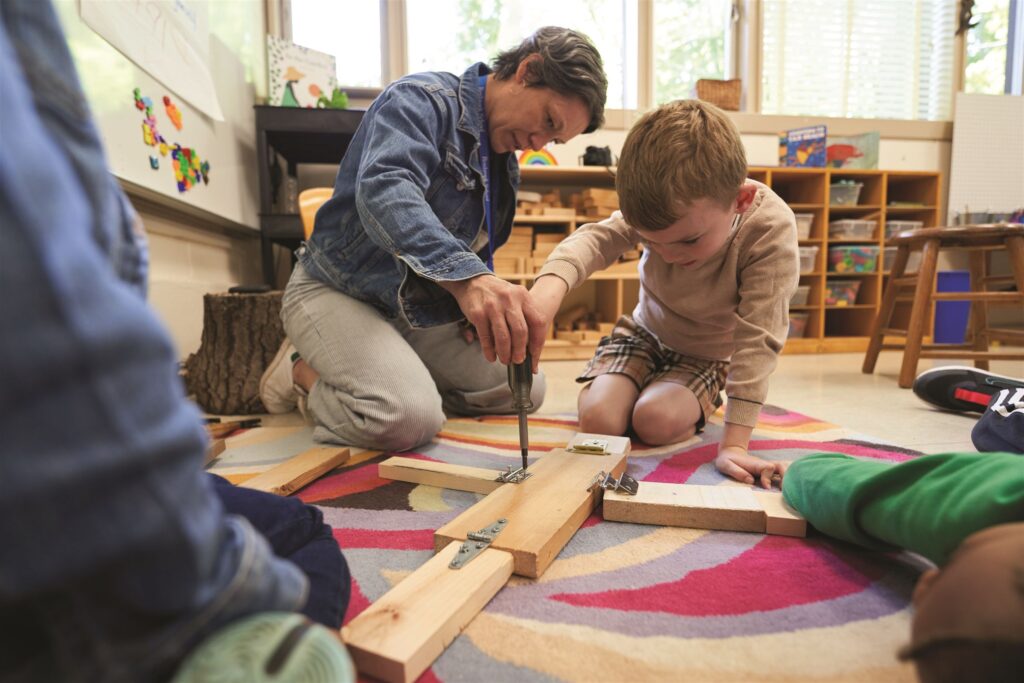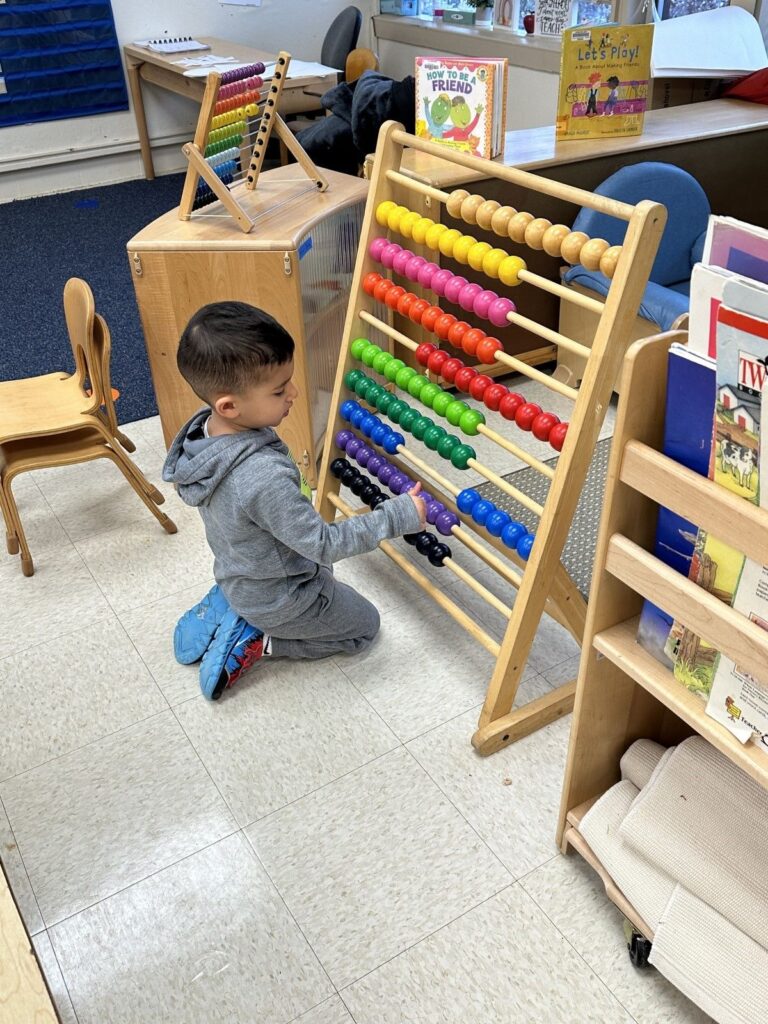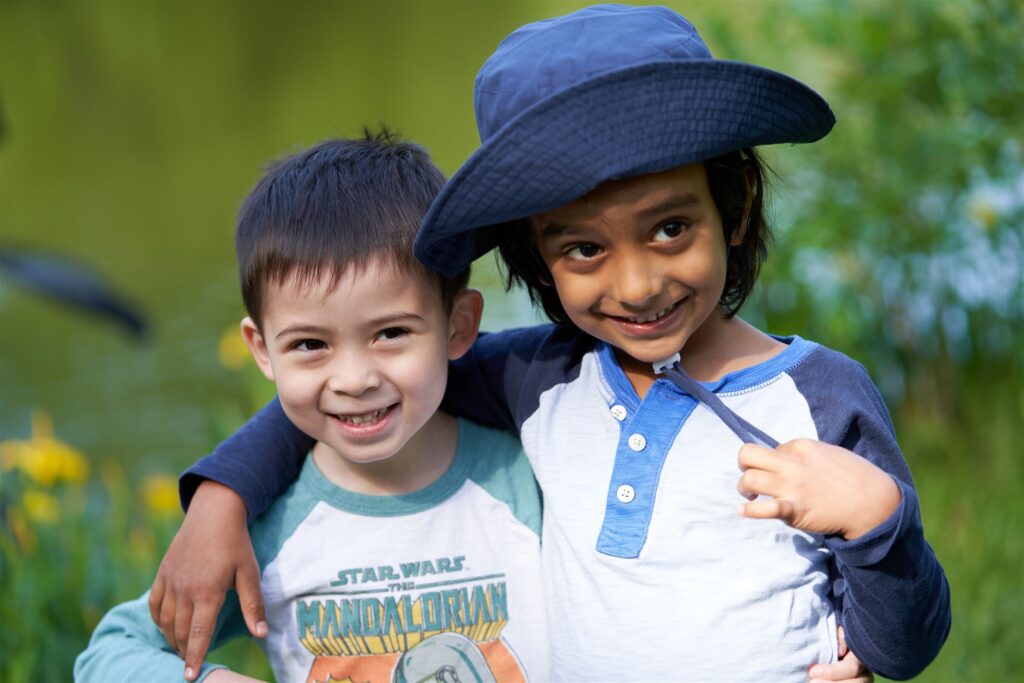Posts Tagged ‘early childhood’
Scientific Thinking from the Beginning
In the Beginning School, children are naturalists. Our 75-acre campus beckons them to explore the outdoors and the creatures, plants, and rocks they find there. They are taught to stop, pause, and look more closely. Our youngest students are not bound by a curriculum; they follow their own discoveries and observations. Their teachers build on the children’s own curiosity to lead them into the process of formal inquiry.
Read MoreBuilding towards Benchmarks in a Play-Based Curriculum: Math
Building number sense allows children to think flexibly and fluently about numbers and allows them to generalize numbers across contexts. Developing strong number sense in the younger years is necessary to compute and solve more complex problems in older grades. Helping each child to believe they are a mathematician and develop a love for math begins with children building an understanding of numbers.
Building your Child’s Social-Emotional Muscles
As parents, we often want to protect our child from feelings like frustration and sadness. However, we need them to experience a large range of emotions, because it isn’t until they have experienced them that they learn how to regulate them.
Read More Self-Advocacy Shows Up in Several Ways for Young Children
Having complicated conversations with children can feel challenging because we aren’t sure what they are ready for and because our own feelings often permeate the conversation. As educators we respond to the questions that children bring us and we do our best to answer only what they have asked. As children are ready for more, they will ask more. We, too, have moments of uncertainty about how to answer their questions as we balance the needs of everyone in the room. It is perfectly ok to say, “That is a great question. I’d like to think about it more and come back to you.” Likewise, if you don’t feel you answered something well, you can always say, “You asked me something yesterday and I’d like to talk about it some more.” Silence is the least healthy alternative because it leaves children to answer their own questions without enough context.


